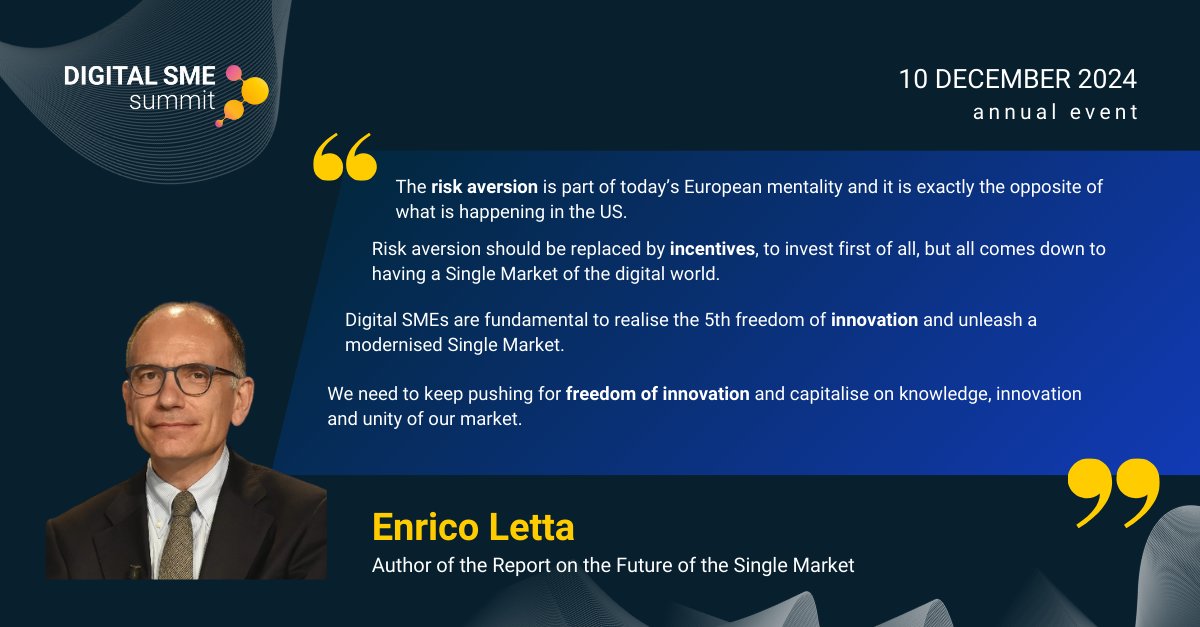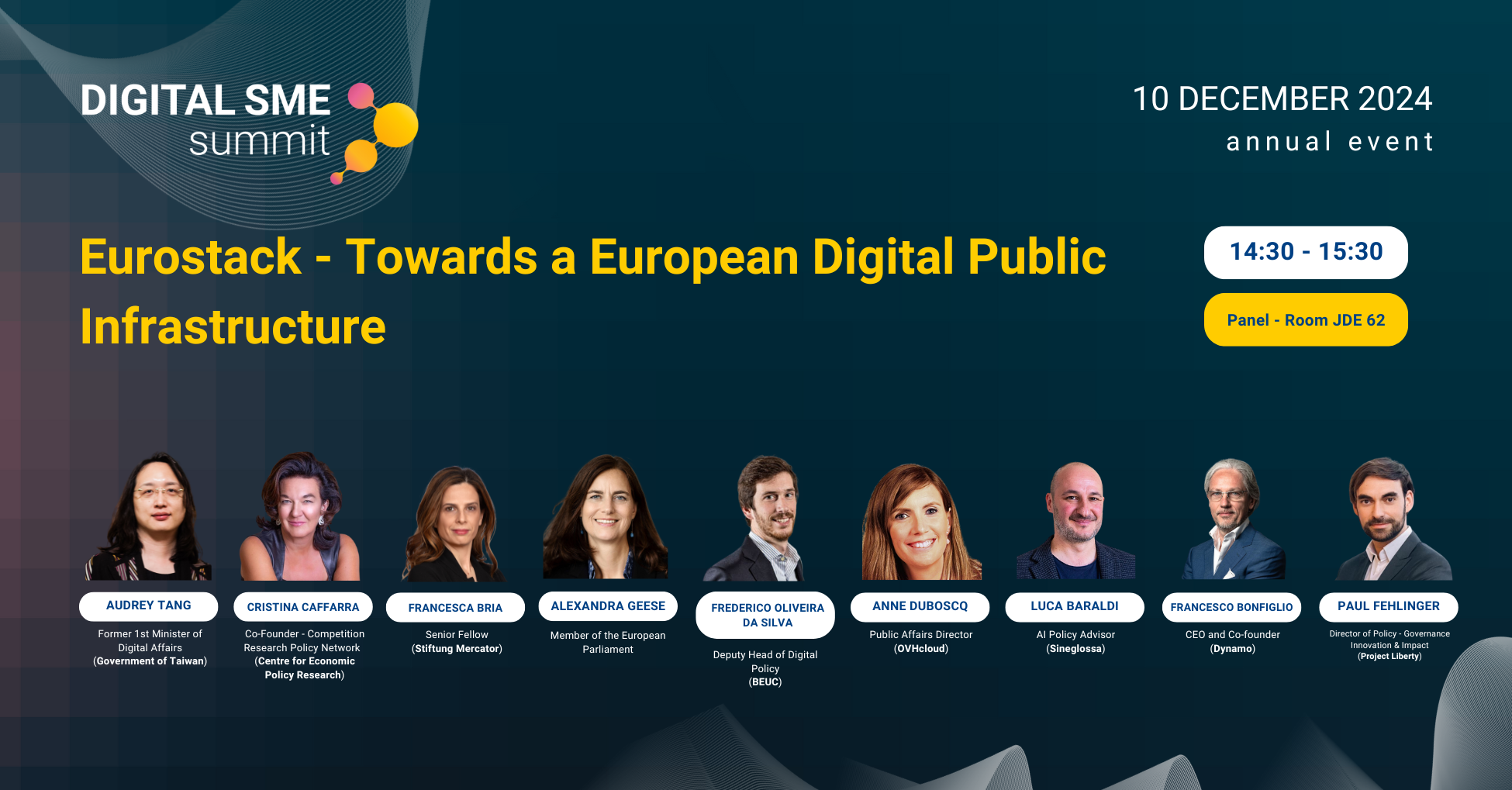
For many years, the European Union put forth a pair of far-reaching plans to police online content and prevent abusive practices by Big Tech firms — and, in so doing, further made its case for becoming a kind of a global leader in tech regulation. The Digital SME Summit, which physically took place December 10, 2024, at the European Economic and Social Committee in Brussels, came with a very clear mission: Breaking Europe’s Digital Boarders.
The ‘appello’: “It’s time for the EU to get serious on TechSovereignty. At stake: freedom, democracy & competitiveness. The EU does not need more regulation, but an ambitious industrial strategy. Gov & industry must work together to deliver EuroStack.”
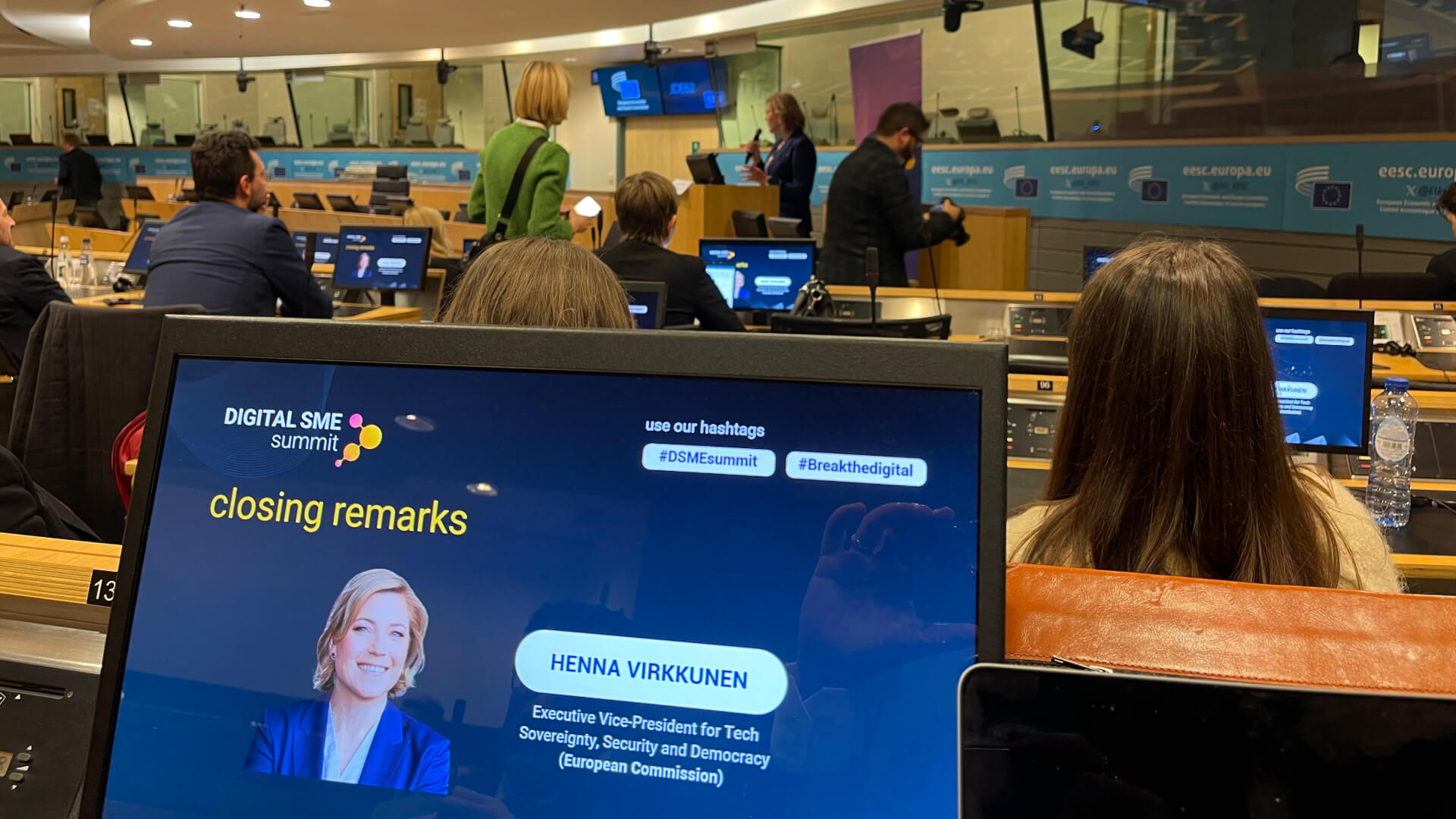
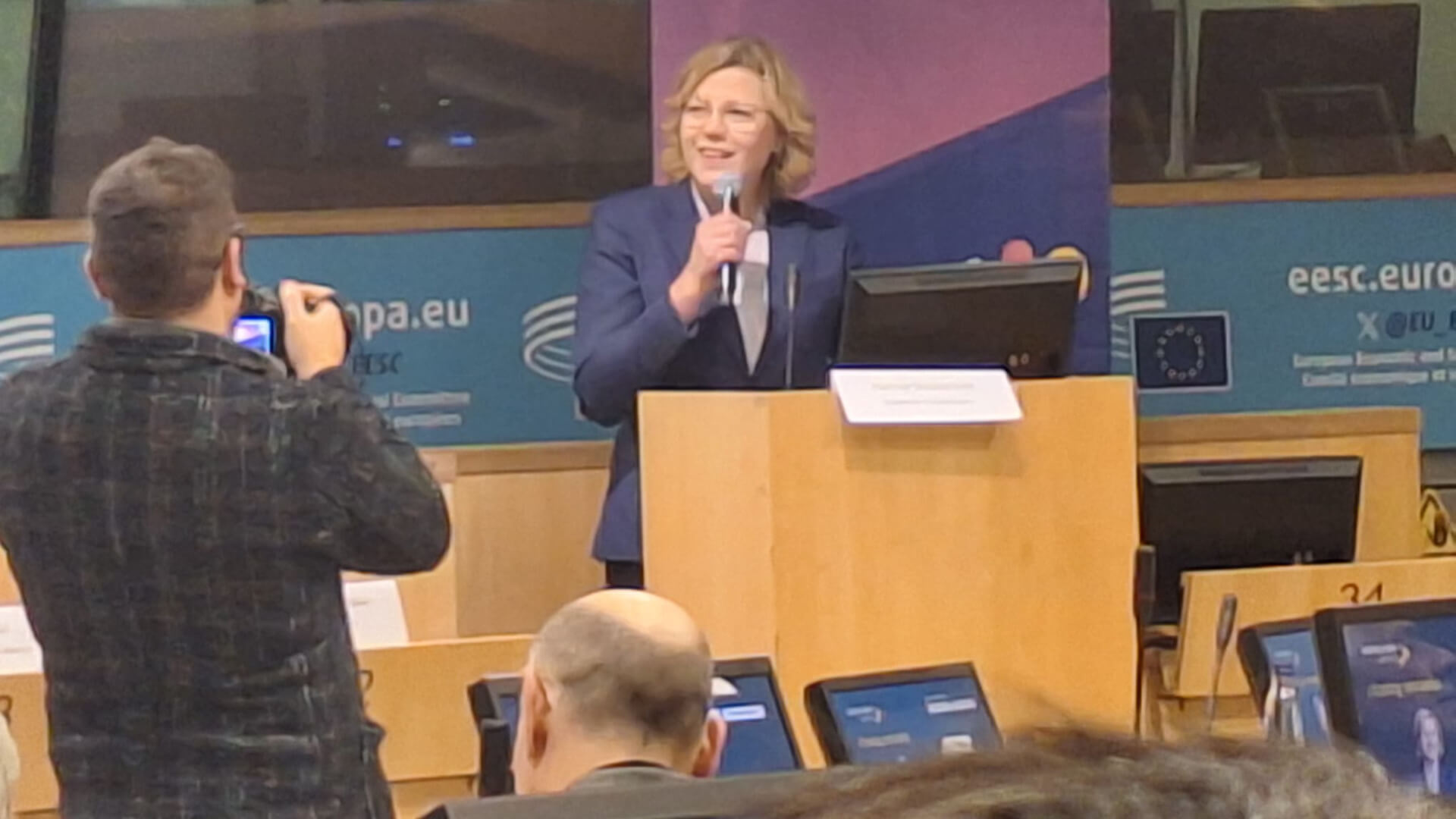
DIGITAL SME unveiled its new priorities for the upcoming EU mandate, advocating for a European Digital New Deal. This comprehensive public strategy aims to transform Europe from being merely a user of technologies to a continent of leading developers. The 2024 DIGITAL SME Summit promised to explore this strategy and the new policy priorities as the EU’s term begins, focusing on innovation driven by tech SMEs and championing a fresh vision for Europe’s digital leadership. But how will this translate into practice? What concretely did the Summit deliver?”
It brought together SMEs from all over Europe and leading voices from the policy, business, academic, and civil society communities and
- discussed the role of SMEs as enablers of digital innovation;
- outlined actions in support of European digital leadership and initiatives that will make SMEs thrive in the Digital Single Market;
- showcased SMEs’ digital solutions and promoted matchmaking to foster synergies among businesses, with the ultimate goal of fostering Alliances for the digitalisation of SMEs across industrial sectors.
Different debates addressed how digital tech will affect the defining challenges of our times as well as a series of business-oriented sessions for SMEs interested in funding opportunities, supporting their business growth. A half-day parallel matchmaking event provided a unique opportunity to connect with potential partners, investors and like-minded entrepreneurs.
Francesco Bonfiglio (CEO at Dynamo) joined as a panelist in Session 1, titled ‘Towards a European Public Digital Infrastructure’, along with Paul Fehlinger, Director of Policy – Governance Innovation & Impact (Project Liberty), Audrey Tang, Former 1st Minister of Digital Affairs (Government of Taiwan), Cristina Caffarra, Co-Founder – Competition Research Policy Network (Centre for Economic Policy Research), Francesca Bria, Senior Fellow (Stiftung Mercator), in absentia, Frederico Oliveira da Silva, Deputy Head of Digital Policy (BEUC), Alexandra Geese, Member of the European Parliament, Anne Duboscq, Public Affairs Director (OVHCloud), and Luca Baraldi, Policy Advisor (Symboolic).
This session explored the potential of a European Digital Public Infrastructure (#EuroStack) to foster innovation and boost European tech independence. The speakers highlighted
- the crucial role of SMEs in turning EuroStack into a reality,
- the need to address the creation of alternative digital solutions to the ones provided by BigTech for European consumers and companies.
Francesco Bonfiglio advocated for a better execution of existing initiatives and a sharper focus on measurable outcomes. While the European Commission’s startup and scale-up strategy aims to simplify access to finance, markets, and talent, industry adoption remains a significant challenge. “We are spending a lot of billions for something that has not been adopted by the industry,” says Francesco.
Indeed:
👉 Europe today accounts for only 10% of the market share in digital products (Chinas holds 40%, the US 20%). Scaling up to become a major global player once again is becoming increasingly difficult.
👉 Europe remains heavily dependent on external digital products, with imports accounting for 80% of its consumption. Added to this are challenges such as significant market fragmentation, a pressing skills gap, and the absence of a robust digital infrastructure leading to barriers like scalability, great enough access to digital skills, and ultimately creating tech sovereignty.
Audrey Tang, former Minister of Digital Affairs for Taiwan, introduced a compelling vision for a resilient “EuroStack”: a European digital ecosystem embedding European values. This approach seeks to position Europe as a political and technological partner while fostering commons organically within the digital fabric.
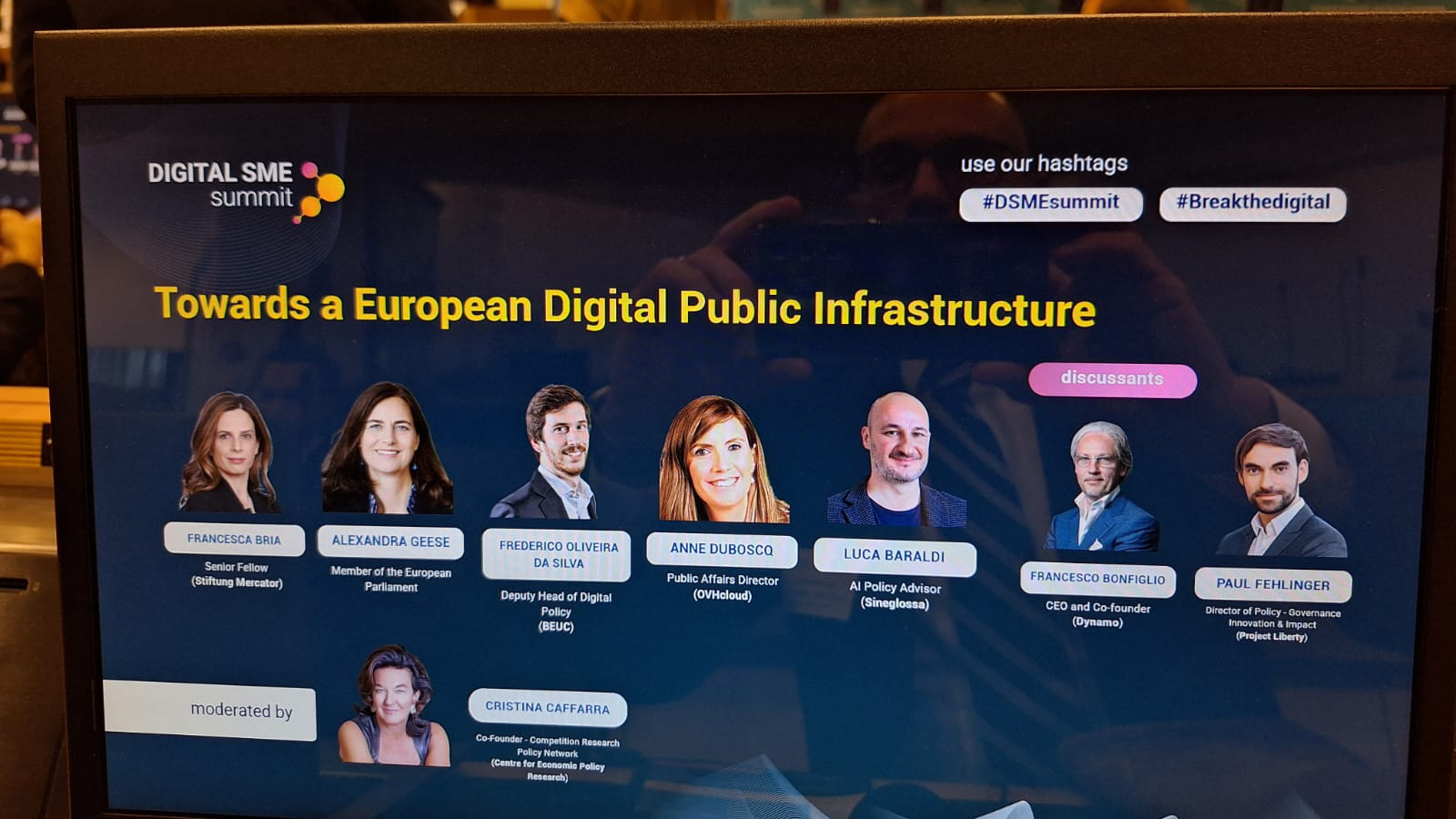
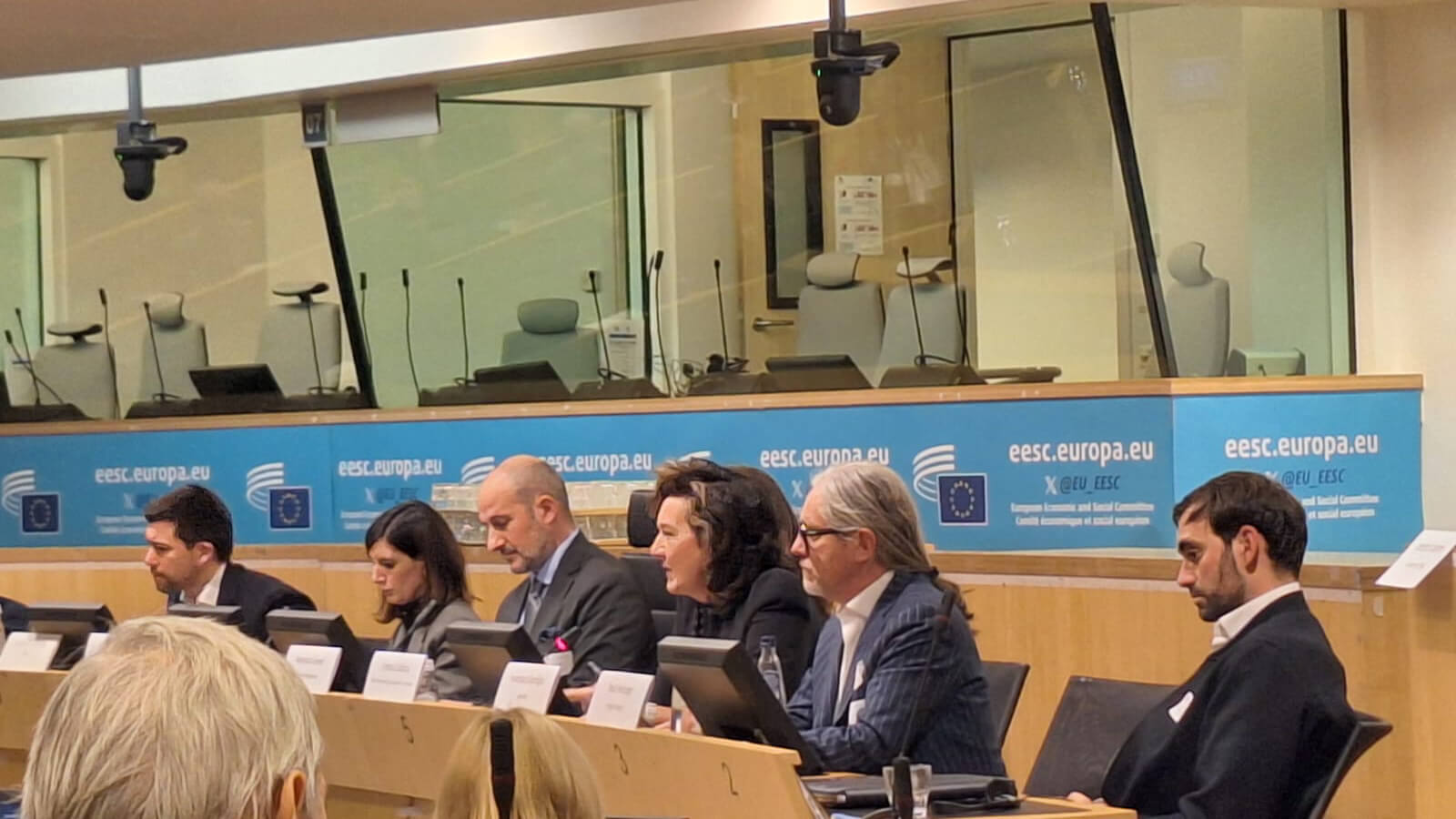
The presentation of Dynamo sparked immediate and significant interest, leading to valuable connections with several innovative digital startups eager to explore opportunities to join the ecosystem. Additionally, the sessions of both Isidro Laso and Yasen Gyurov provided crucial insights into the wide EU funding opportunities available to startups at various stages of their development, highlighting potential pathways for growth and innovation.
Further key insights from the event included:
- The future of standardisation: The speakers raised concerns about the diminishing appeal of standardisation practices among younger generations. Proposed solutions included innovative approaches like storytelling, gamification, and early exposure to standardisation skills through the education system. However, a persistent issue remains: that’s the often seen lack of resources in the SME to actively participate in standardisation processes.
- Digital Infrastructure: Should be considered public infrastructure. EuroStack, the highly supported initiative to promote an industrial policy project investing massively across the European digital supply chain, is alredy viewed to become 𝗮𝗻 𝗲𝗰𝗼𝘀𝘆𝘀𝘁𝗲𝗺 𝗼𝗳 𝗼𝗽𝗲𝗻 𝗶𝗻𝘁𝗲𝗿𝗼𝗽𝗲𝗿𝗮𝗯𝗹𝗲 𝗰𝗼𝗺𝗽𝗼𝗻𝗲𝗻𝘁𝘀, upholding values such as transparency, interoperability, controllability, trust and digital sovereignty.
- AI and EU sovereignty: The speakers emphasised the importance of EU sovereignty in the age of GenAI. By providing adaptable workflows for customers, Tobias Haar envisions a future where GenAI remains a transformative force aligned with European priorities.
- Developing a New Generation of Standardization Experts: Small Business Standards (SBS) highlighted the critical demand for a diverse and skilled new generation of standardization experts as the current workforce nears retirement. The initiative covers education from primary school through university, fostering a strong talent pipeline.
Freedom of Innovation:
